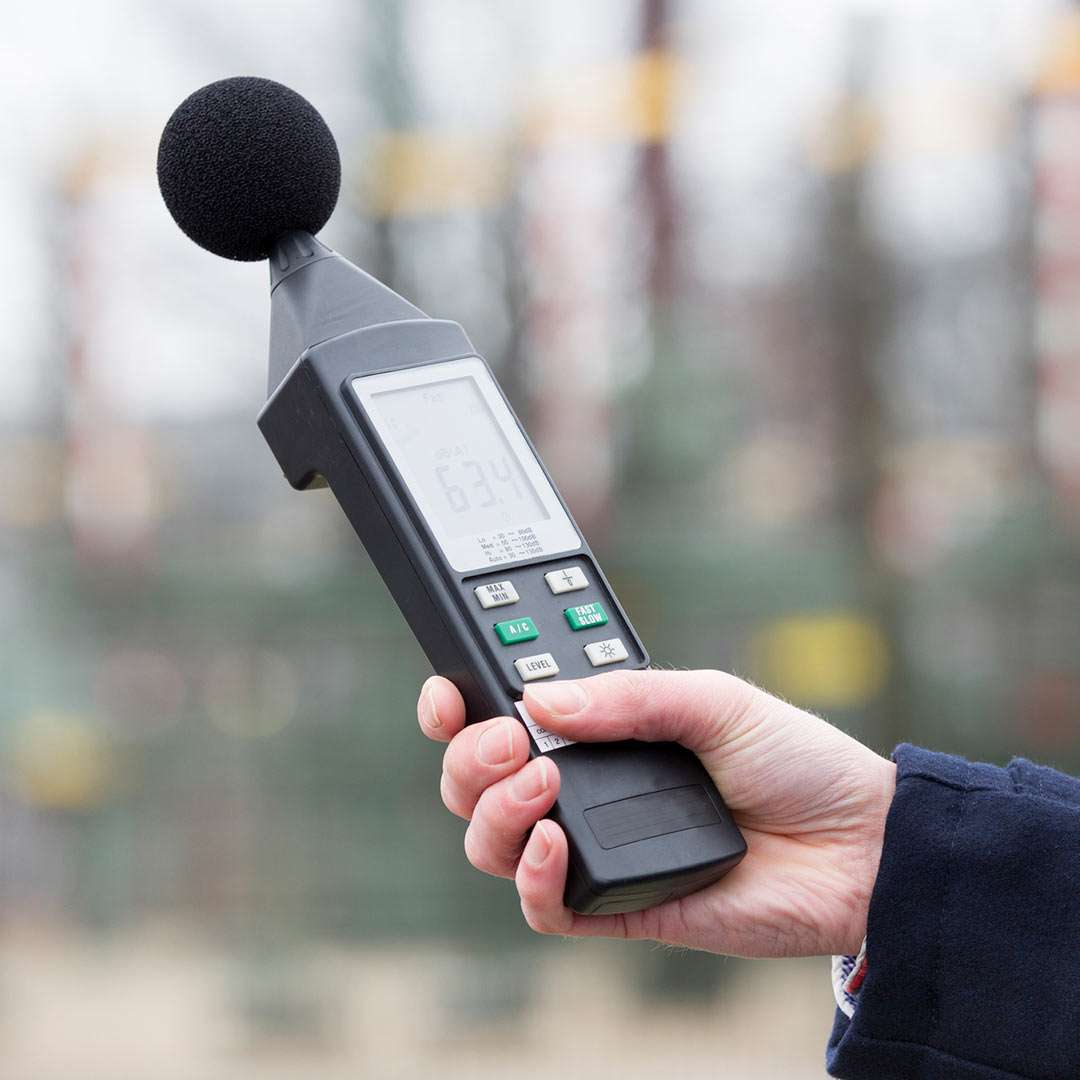Noise Impact Assessments
Are you planning a development or making alterations to your property? In today’s urban landscape, before you introduce any new noise source into the environment, a Noise Impact Assessment and Noise Survey may be required as part of the planning application process.
Why is a noise impact assessment important?
Noise can affect health, wellbeing, productivity, and the environment. Exposure to loud noise can cause health problems, especially in children. Noise Impact Assessments help mitigate the impact of noise on future occupants and the community.
At Focus 360 Energy, we provide comprehensive Noise Impact Assessment services, ensuring compliance with regulations and a peaceful environment for all. Contact us to inquire about our services and receive expert guidance from our acoustic consultants.
By assessing any potential noise-relating issues on nearby residents before any noise source is introduced, we can significantly reduce the likelihood of receiving further complaints from neighbours or a noise abatement notice from the Local Authority. As a result, the Local Authority will then request a noise survey and noise report to be undertaken by an acoustic consultant.
Noise impact calculations and assessments are guided recognised standards in the UK, which include:
BS4142: 2012: Methods for rating and assessing industrial and commercial sound’: This standard provides a comprehensive framework for evaluating the sound produced by industrial and commercial activities. It plays a pivotal role in ensuring that noise levels remain within permissible limits.
BS8233: 2014: Guidance on sound insulation and noise reduction for buildings’: Building acoustics are a crucial aspect of noise management. This guideline offers invaluable insights into designing and constructing structures that mitigate noise disturbances effectively.
Local Authority Policies: Beyond these established standards, Local Authorities often have specific policies on noise control. These policies are tailored to the unique characteristics of the local area and play a crucial role in shaping noise impact assessments.

Why do developers need a BS8233 noise assessment?
Developing properties near transport noise sources like roads or railways may require a BS8233 noise survey to ensure appropriate internal and external noise levels, guaranteeing the amenity of future occupants.
How is a BS8233 noise survey conducted?
The aim of a noise survey is to gain a baseline measurement of the noise environment within the vicinity of your proposed development. We will carry out noise measurements, calculate predicted noise levels, recommend mitigation measures, and provide a technical report for the local authority to support the planning application.
What will be in the noise impact assessment report?
The report outlines the proposed development, surveying method, and results, including LAeq and LAMax. It also provides an assessment of the noise level results and mitigation measures required to protect the amenity of future occupants.
Why Choose Focus 360 Energy for noise impact assessments?
When it comes to Noise Impact Assessments, choosing the right partner can make all the difference. Our team of experienced acoustic consultants in London and Manchester brings a wealth of knowledge and practical experience to the table. We’ve successfully conducted numerous Noise Impact Assessments, earning a reputation for excellence in the field. With us, you can trust that your project is in capable hands.
Every project is unique, and so are its noise challenges. At Focus 360 Energy, we understand the importance of tailored solutions. We don’t offer one-size-fits-all assessments. Instead, we work closely with you to identify your specific needs and design assessments that address them effectively.
We adhere to internationally recognised standards such as BS4142: 2014 and BS8233: 2014, ensuring that your project meets all regulatory requirements. Our commitment to compliance guarantees that your development aligns with legal mandates.
Noise regulations and policies can vary from one locality to another. We possess an in-depth understanding of local authority policies on noise contro. This local knowledge is invaluable in crafting assessments that are in harmony with the surrounding community.
The Regulations and requirements of a noise impact assessment
When it comes to noise impact assessments, meticulous attention to regulations and standards is paramount. These assessments follow a set of well-defined criteria to ensure that your project aligns with both legal requirements and the well-being of the surrounding community.

Related Sustainability Services
Noise Impact Assessment is frequently combined with the following additional services:
Air Quality Assessments
Find out moreDaylight & Sunlight Assessments
Find out moreSustainability Statement
Find out moreEnergy Statements for Planning Applications
Find out moreEnergy Statement – London Plan
Find out moreFlood Risk Assessments
Find out moreBook your Noise Impact Assessment today.
Don’t guess the complexity or cost of your Noise Impact Assessment. Contact Focus 360 Energy today to get a quote today.
Click the Get a Quote link to access our online portal, or use the form to share brief details about your project and we will respond promptly.
Frequently Asked Questions
The primary objectives are to assess potential noise impacts on residents and the environment, mitigate those impacts, ensure compliance with regulations, and foster a harmonious coexistence between projects and communities.
An NIA typically involves collecting data on existing noise levels, the characteristics of the noise source, the distance to sensitive receptors, and other site-specific factors.
Yes, an NIA may suggest various measures to reduce noise impacts, including noise barriers, acoustic insulation, altering equipment placement, or even scheduling noisy activities during specific hours.
Acoustic consultants or environmental specialists typically carry out NIAs. They have the expertise to measure and analyse noise and suggest appropriate mitigation measures.
Yes, an NIA is often a mandatory part of the planning application process. It provides essential data and recommendations that support decision-making by local authorities.
In some cases, for smaller-scale projects with minimal noise impact, an NISA may not be required. However, it’s crucial to consult with local authorities to determine the necessity.
If noise levels exceed acceptable limits, the NIA will recommend mitigation measures to bring the project into compliance. It’s essential to follow these recommendations to avoid future issues.
Address the complaint promptly and consider implementing additional noise-reduction measures if necessary. It’s crucial to maintain a good relationship with the affected community.